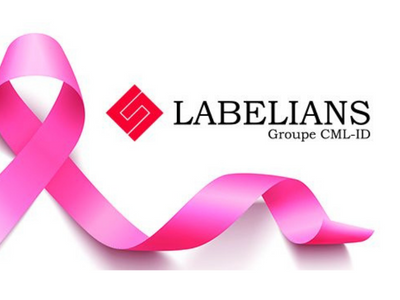Mrs Dominique LUNTE, Biologist at the MAYMAT Laboratory and President of LBI, made a very remarkable intervention, about CSR, during the Young Biologists Congress of May 19 and 20, 2022.
CSR is indeed a subject that affects everyone, and perhaps even more so a young generation that wants to contribute, on a daily basis, and therefore in its working environment, to a more sustainable planet, which everyone takes care of, for the greater benefit of all humans living on it.
At LABELIANS, the commitment to a virtuous contribution to the chain that unites humans to their environment has been deeply felt for half a century. In everything we do, we strive to make a contribution to a more vibrant planet, where we build links for the benefit of all, while preserving the resources that have been entrusted to us.
We were therefore extremely appreciative of Ms. LUNTE’s speech and offered to answer a few questions for laviedulabo.fr to share this message with our entire community of laboratory technicians, biologists and laboratory professionals in general.
Laviedulabo.fr: You mention 7 fields of integration of CSR in your recent interventions, can you please detail them?
These are the 7 pillars on which the ISO 26000 standard is based and encourage organizations to question their strategic, managerial and operational practices and the results obtained on the 3 major environmental, social and economic pillars;
Here are some examples:
- 1 – organizational governance: does the organization have policies, processes, or other mechanisms in place to drive and implement CSR principles and practices?
- 2 – human rights: does the organization combat all forms of discrimination and promote equal opportunity?
- 3 – working relations and conditions: how are employer/employee relations, health and safety at work and social dialogue taken into account?
- 4 – the environment: is the organization involved in pollution prevention, sustainable use of resources, the fight against climate change and environmental protection?
- 5 – fair practices: this pillar deals with issues such as anti-corruption, fair competition and the promotion of social responsibility in the value chain
- 6 – consumer issues: how committed is the organization to ensuring that its customers are well informed and that their health and data are protected? How does it take into account feedback from its customers?
- 7 – communities and local development: how is the organization involved in the creation of wealth in its territory: jobs, skills, technologies, education, volunteer work, support
It is obvious that by reflecting on these issues, which are both very concrete and very global, managers will find levers for progress for their organization, their territory and the world.
It is a virtuous circle for all: managers, employees, partners, patients and of course our planet.
Think global, act local
Laviedulabo.fr: How manufacturers, distributors and laboratories can they, in your opinion, unite in this approach? What are the potential areas of collaboration to engage us, together, chain of human health, in this process?
It is obvious that an integrated approach with our suppliers will give better results because we really form a chain of values but also of consumption.
For example, every day we see the waste generated by reagent deliveries: every day we throw away large quantities of polystyrene packaging and cold blocks.
During calls for tenders, we will have to include these CSR themes such as the recycling of old automatons, the packaging of reagents to limit packaging, the elimination of liquid waste, the consumption of water and electricity, the delivery methods, but also to identify the origin of our suppliers’ purchases, as we did with the Independent Biologists network during the outbreak of the war in Ukraine.
The problems are numerous and so are the levers for progress
Laviedulabo.fr: What is the response of your peers to this approach? Do you feel a new ownership to it, perhaps even generational?
Yes, this issue is becoming more and more important in the network of independent biologists and is becoming a real recruitment lever for young people.
Everyone is motivated to work on CSR: for the planet, for the economy of laboratories, to make organizations evolve… .
Everyone can benefit from it.
It is a societal issue.
About Dominique LUNTE
Dominique LUNTE is 58 years old, married and mother of 3 children (including a biology intern).
After studying medicine and completing an internship in biology in Paris, she became in 1992 the director of the MAYMAT laboratory created by her father, who died in 1985 during his studies
COFRAC auditor since 2003, she is President of the network of independent biologists since 2016.




